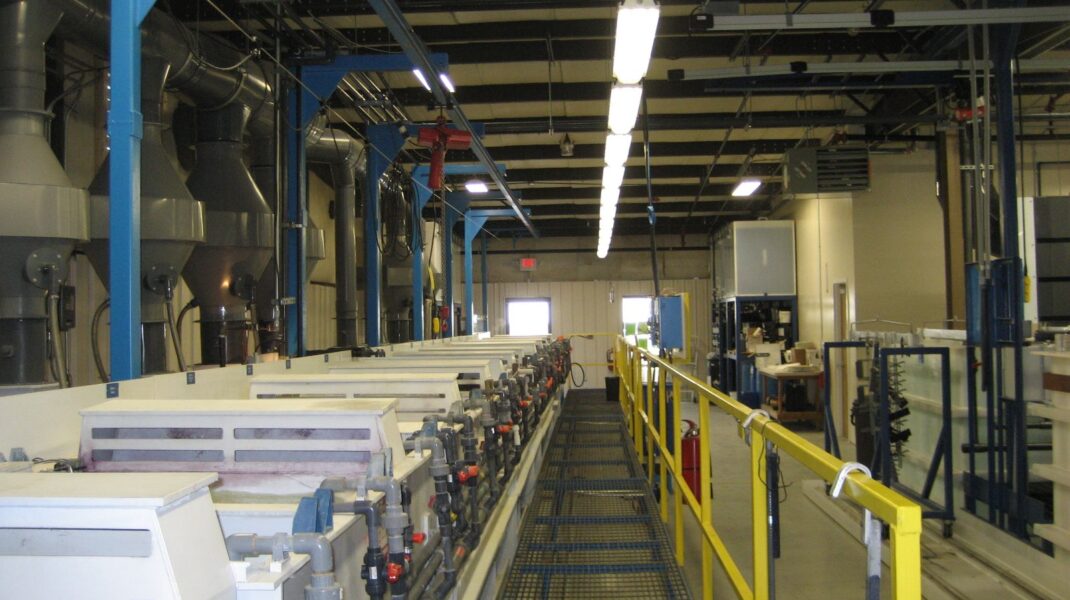
Consider These Nuances in the Passivation of Stainless Steel Parts
From an outside perspective, passivation appears to be a relatively uncomplicated procedure. It’s a fairly simple process in and of itself, with just two steps to strengthen, protect, and improve the surface of stainless steel alloys. And unlike many of the metal finishing services we handle at Global Metal Finishing – such as anodizing and hardcoat – passivation doesn’t fully penetrate the material, acting instead as a surface finish.
However, passivation has nuances and intricacies that require extensive knowledge and expertise. At GMF, we’ve mastered this complex process to provide our customers with superior passivation services that guarantee the best possible quality and performance from their stainless steel components.
The Passivation Process
The passivation of stainless steel is a purification process, a deep clean that goes beyond surface-level treatment. The primary objective is to leave behind a corrosion-resistant finish on the surface of stainless steel by removing any traces of iron or other metals.
The Nuances of Passivation
Material Specificity
At GMF, we only utilize stainless steel in our passivation services. This specialization allows us to focus our expertise and deliver exceptional results.
The Chemistry Behind Passivation
Our operators use two primary chemicals in the passivation process: citric acid and nitric acid. The choice between citric and nitric acid passivation depends on the following factors:
- Material composition: Certain stainless steel alloys can only handle citric acid passivation, while others may require varying concentrations of nitric acid. For instance, highly resistant steel grades may be passivated in a low-percentage nitric acid bath, while less resistant alloys may call for greater levels of nitric acid.
- End application: Nitric acid passivation can yield more aggressive and robust corrosion resistance, which may benefit some end uses, such as aerospace, chemical processing, and marine applications.
- Unique customer specifications: GMF typically defaults to citric acid for most applications due to safety and environmental concerns. However, our team offers nitric acid passivation when a customer or spec requires it.
- Environmental considerations: Citric acid is widely favored in industries with strict regulatory standards, such as food processing and surgical applications due to its non-toxic nature.
Process Variations
The passivation of stainless steel is highly technical, requiring dozens of combinations of specifications and testing requirements. Factors such as concentration levels, immersion times, and temperature can all affect the final result. Our expert metal finishing team is experienced in these variations, allowing us to tailor the process to each customer’s unique needs.
Trust GMF’s Expertise in the Passivation of Stainless Steel
At Global Metal Finishing, we pride ourselves on our proven track record of exceeding customer expectations and producing spectacular outcomes. Here are some of the standouts of GMF’s passivation services:
Extensive Knowledge and Experience
GMF’s operators are highly trained and familiar with the various alloys and processes. Whether our customer requires citric acid or nitric acid or in-house testing, we deliver consistent results every time.
Customer-Centric Approach
We understand that each customer may have unique specifications or requirements. Whether working with detailed customer specifications or applying our default methods, our team ensures each passivated component meets the highest quality and functionality standards.
Continuous Improvement Mindset
The GMF team is constantly refining our processes and expanding our capabilities. In fact, we’ve recently added passivation to our Nadcap accreditation, demonstrating our commitment to quality and reliability.
Whether you need citric or nitric acid passivation, have specific requirements, or are simply seeking the best results possible, Global Metal Finishing is your trusted partner in the passivation of stainless steel.
Request a quote to get started.
